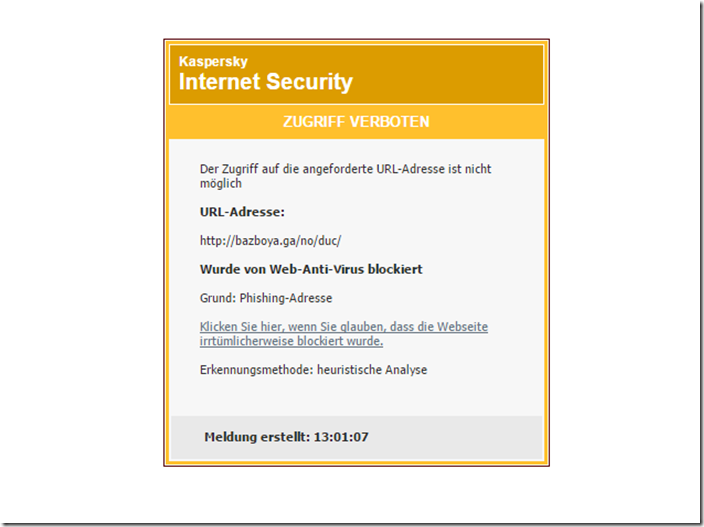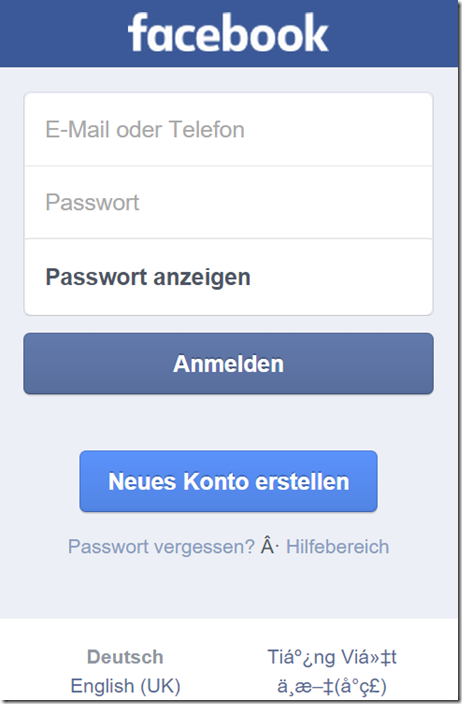And again it is the dirty previews of “animal films” of a special kind that lure Facebook users into a trap.

As is already known from the past, these image previews are chosen very drastically and do not lead to the alleged videos, but mostly to a page that wants to harm the visitor in some way.

Same in this case. What is marked here with the status text “OMG” (oh my god) definitely does not show a video at the click of a button in which a horse and two naked ladies are the actors.
[adrotate group=“1″]
Credentials at risk!
Clicking on the preview image takes the visitor away from Facebook; protection software with appropriate heuristics immediately recognizes the danger.
Because what is really hidden behind this porous video preview is not a video, but a fake Facebook login! Although this doesn't look particularly convincing on a PC screen, it is even more convincing on a smartphone screen.
Facebook's mobile login is recreated here.
Please do not log in via this page under any circumstances, as this is where your login details will fall into the hands of fraudsters.
General phishing warning:
- Phishing emails generally try to appear as if they come from the relevant company . Fraudsters use these to try to get personal data, preferably bank credit cards or other payment data.
- The real “art” of these emails is the story with which the recipient is supposed to trust the email and open the inserted link. Expression, grammar and spelling, as well as plausibility and individuality play a very important role here. Especially in the recent past, there have been an increasing number of emails that shined with individuality: they could address the recipient with the correct name and also provide actual address and personal data.
- However, you can generally note: Banks, payment and purchase portals never ask you to log in to the account using a built-in link! In addition, although a generic salutation is always an indication of phishing, an existing correct salutation is not proof of the authenticity of an email .
- Never log in via a link that is sent by email, but always type the relevant page by hand into the address bar of your browser and log in there. If there are actually announcements of the relevant service, they will be displayed there. In addition, if possible, you should also refrain from carrying out banking transactions via public/third-party WiFi networks , as you never know exactly whether (and in an emergency from whom) these networks are being used be logged.
- Never enter real data in the form fields! Under certain circumstances, the data can even while typing without having to confirm with “continue”.
Notes:
1) This content reflects the current state of affairs at the time of publication. The reproduction of individual images, screenshots, embeds or video sequences serves to discuss the topic. 2) Individual contributions were created through the use of machine assistance and were carefully checked by the Mimikama editorial team before publication. ( Reason )



